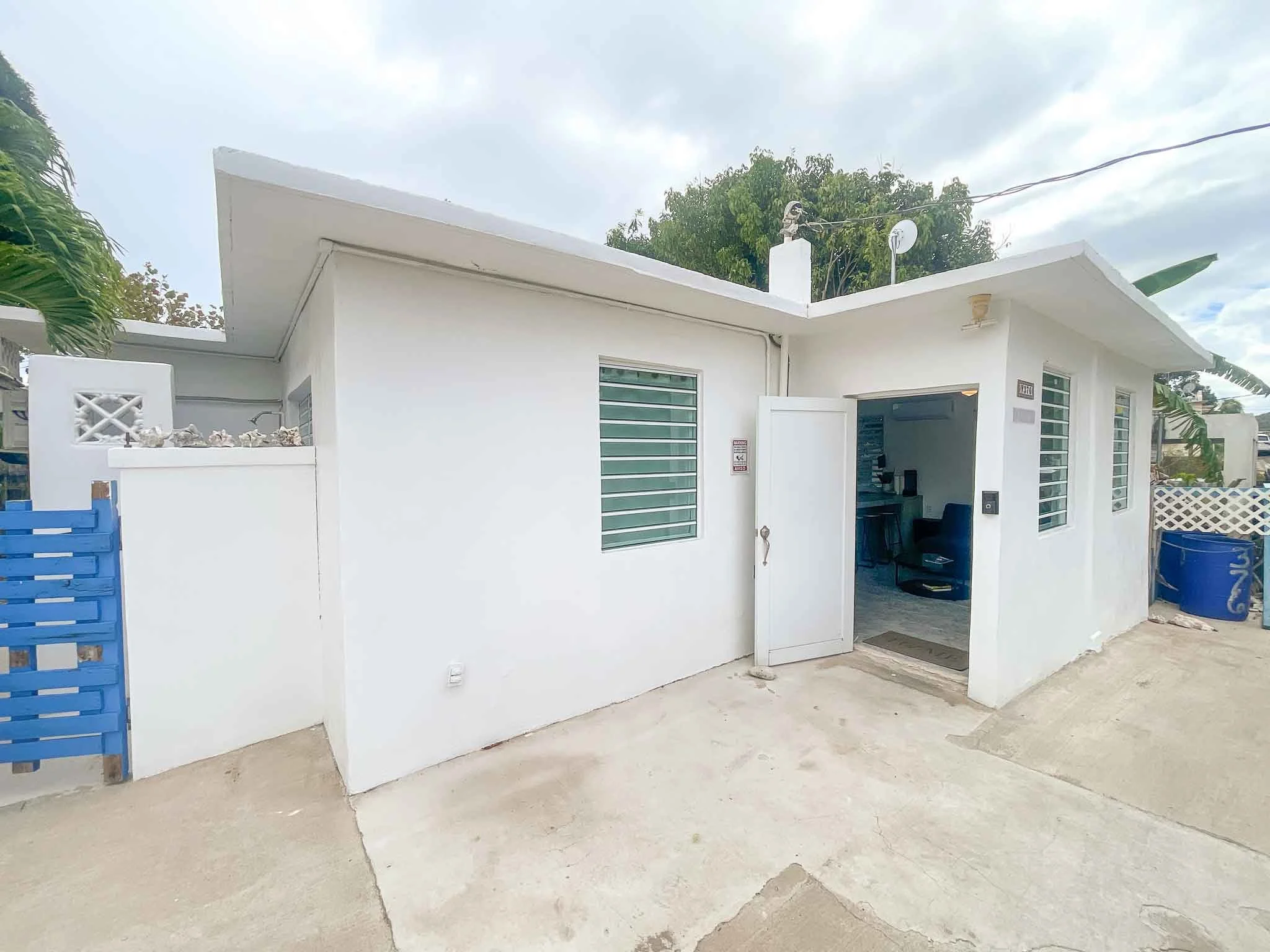Insurance is one of those topics that tends to come up either right before closing or right after someone buys a property. It is also one of the most important parts of owning real estate on Vieques, especially in a coastal environment subject to storms.
The short answer is yes, properties on Vieques are insurable. However, there are important nuances, and buyers should approach insurance as part of their due diligence rather than as an afterthought.
There was a period after Hurricane Maria when insurance companies were not accepting new policyholders in certain areas of Puerto Rico. It took several years for the market to stabilize. At this point, Vieques properties can generally be insured, but availability and pricing depend heavily on the specific property. My understanding is that Culebra remains more challenging, and in some cases new policies are still difficult to obtain there. For property owners in any coastal or island market, one practical piece of advice is simple: if you have insurance, do not miss payments. In tight insurance environments, a lapse in coverage can create unnecessary complications or risk non-renewal.
It is important to note that I am not a licensed insurance agent, and nothing here should be taken as professional insurance advice. This is based on conversations with agents and experience working with buyers. Anyone considering a purchase should confirm details directly with a licensed insurance professional.
One of the most significant factors affecting insurability on Vieques is title. A property should have clear, recorded title. There are still properties on the island that do not have proper title documentation. While there may be specialty or international insurers willing to consider unusual situations, that is not the norm and often comes at significantly higher cost. For most mainstream insurance carriers in Puerto Rico, clear title is essential.
Insurance also ties directly into financing. If a property cannot be insured, most mortgage lenders will not finance it. For buyers obtaining a loan, insurance is not optional. For that reason alone, it is wise to involve an insurance agent early in the process. If you are seriously considering a specific property, sharing details with an insurance broker before making an offer can prevent unpleasant surprises later. Much like speaking with a mortgage lender in advance, this extra step can save time, money, and stress.
Construction type is another major factor. Concrete homes tend to be the most straightforward to insure in Puerto Rico. Properties that are entirely wood, have significant wood framing, or have wood roofs may require additional scrutiny. In some cases, insurability depends on how the structure was built and whether it meets certain wind-resistance standards. I have been told that there are mechanisms by which more difficult properties can sometimes be grouped into broader insurance pools, though the specifics vary and are handled by the agents and carriers themselves. The important takeaway is that wood construction is not automatically uninsurable, but it should always be reviewed carefully with an experienced broker.
Newer housing trends present additional complications. Container homes and so-called tiny homes have grown in popularity across Puerto Rico, including on Vieques. While they may be appealing for cost or design reasons, insurance companies are still adjusting to these models. Because they are relatively new and lack long-term claims history, many insurers approach them cautiously. Buyers considering alternative construction should confirm insurability and cost before committing to purchase or construction. What looks innovative and affordable on paper can become more complicated if insurance coverage is limited or expensive.
As a general principle, insurability improves with clear title, conventional construction (particularly reinforced concrete) and documented compliance with building standards. Properties that fall outside those norms are not necessarily impossible to insure, but they require more diligence and potentially higher premiums.
Insurance is also not static as rates fluctuate. and carrier appetite changes, and storm seasons influence underwriting. What is true this year may evolve next year. For that reason, buyers should treat insurance as part of the overall financial equation of owning property on Vieques, just as they would maintenance, utilities, or property taxes.
Ultimately, Vieques is insurable, and many owners carry policies without issue. The key is to ask questions early, verify details with licensed professionals, and understand how the specific characteristics of a property affect coverage and cost.
Below are several insurance professionals who have experience working with properties on Vieques and in Puerto Rico more broadly. Buyers are encouraged to speak directly with them and determine what coverage best fits their needs.
Alfred Huertas: 787-902-9719, ahuertasinsurance@gmail.com
Maria De Lourdes Fernandez: 787-602-9719, info@fernandezargote.com
Jorge E. Rivera Jimenez Seguros y Fianzas: 787-751-3797, http://www.jorgeerivera.com/
If you are considering a purchase and have questions about how a specific property might be viewed by insurers, feel free to reach out. While we are not insurance professionals, we can help connect you with the right people so you can make informed decisions before moving forward.
As a practical example, below are three reinforced concrete homes currently for sale on Vieques that reflect the type of construction most insurance carriers are generally comfortable underwriting. While every property must be evaluated individually by a licensed insurance professional, homes with clear title, solid concrete construction, and conventional design tend to present fewer obstacles during both the insurance and mortgage process. If insurability is an important factor in your decision-making, these properties are worth serious consideration.
(Click on the image below to see more details)



